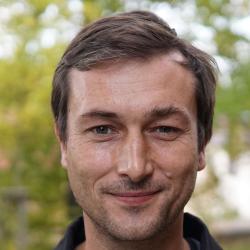The 2nd European Conference on Earthquake Engineering and Seismology (2ECEES) will take place from 24-29 August, 2014 in Istanbul, Turkey. The meeting is a a joint event of the European Association of Earthquake Engineering (EAEE) and the European Seismological Commission (ESC). There will be a session on Paleoseismology:
Convenors
Andrey Korjenkov and Daniela Pantosti
Session scope
Knowledge on long-term seismicity is the key-point for reliable seismic hazard assessment. Lack of it cannot be truly compensated by any sophisticated methods of instrumental data analysis. Experience accumulated demonstrates that catastrophic seismic events may have very long return periods, much longer than it can be deduced from not only instrumental but also historical data. Especially, if one bear in mind that in many regions the time window covered by the catalogue of historical earthquakes is short, actually no more than few centuries. There is another point calling for attention to be paid to paleoseismological studies. The recent catastrophic earthquakes clearly demonstrated once more that the vibratory ground motion, although a serious source of direct damage, it is by no means the only parameter that should be considered, being most damages caused by the coseismic geological effects, either directly linked to the earthquake source or provoked by the ground shaking (“Earthquake Environmental Effects”). Surface faulting, regional uplift and subsidence, tsunamis, liquefaction, ground resonance, landslides, ground failure, are indeed controlled or induced by the local geological setting. Presentations describing new data, approaches, and methods used to identify evidence of palaeoseismology (for instance surface ruptures, liquefaction, tsunami deposits), to date it, and to retrieve source parameters are welcome.



No Comments
No comments yet.